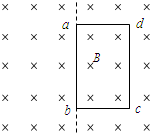Some consumer researchers distinguish (1) "rational" motives and "emotional" (or "non-rational") motives. They use the term "rationality" (2) the traditional economic sense that assumes (3) consumers behave rationally when they carefully consider all alternatives (4) choose those that give them the greatest utility (i.e., satisfaction). (5) a marketing context, the term "rationality" implies that the consumer selects goods based (6) totally objective criteria, such (7) size, weight, price, and so on. "Emotional" motives imply the selection of goods (8) to personal or subjective criteria—the desire (9) individuality, pride, fear, affection or status.
The assumption underlying this distinction is (10) subjective or emotional criteria do not maximize utility or satisfaction. (11) , it is reasonable to assume that consumers always attempt to select alternatives that, (12) their view, serve to maximize satisfaction. Obviously, the assessment of satisfaction is a very personal process, based (13) the individual’s own needs as (14) as on past behavioral, social, and learning experiences. What may appear (15) irrational to an outside observer may be perfectly rational (16) the context of the consumer’s own psychological field. For example, a product purchased to enhance one’s self-image (such as a fragrance) is a perfectly rational form of consumer behavior. (17) behavior did not appear rational to the person who undertakes it (18) the time that it is undertaken, obviously he or she would not do it. (19) the distinction between rational and emotional motives does not appear to be warranted.
Some researchers go so far (20) to suggest that emphasis (21) "needs" obscures the rational, or conscious, nature of most consumer motivation. They claim that consumers act consciously (22) maximize their gains and minimize their losses; that they act not (23) subconscious drives but from rational preferences, (24) what they perceive to be (25) their own best interests.

